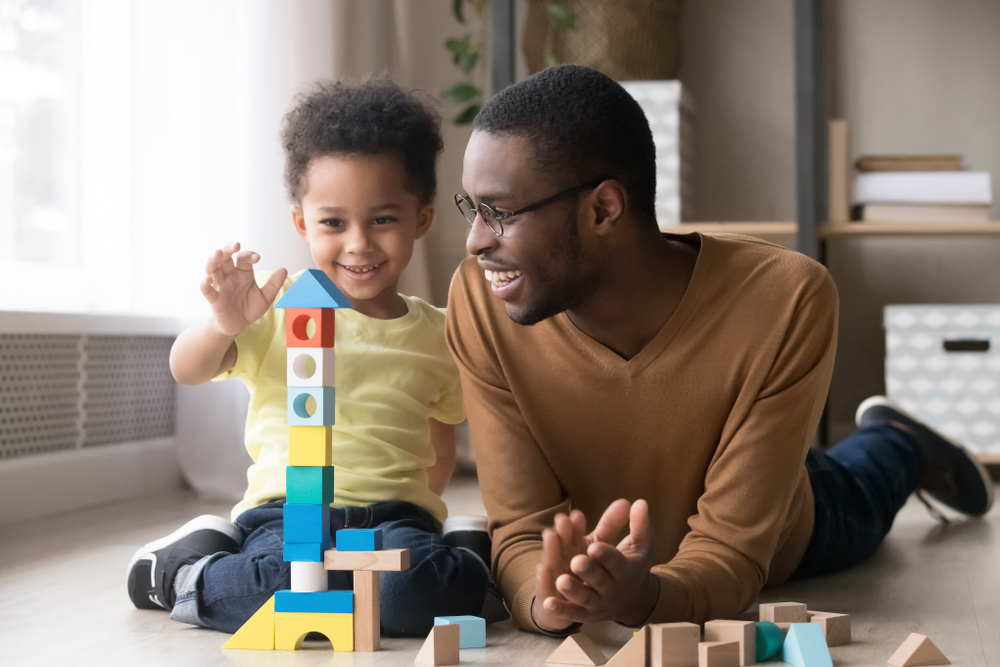Historical Knowledge Normal History Worksheets for Ages 4-7
6 filtered results
-
From - To
Discover our engaging "Historical Knowledge Normal History Worksheets" designed for ages 4-7! These worksheets provide a fun and interactive way for young learners to explore essential historical concepts and figures. Perfectly aligned with early education standards, these resources encourage curiosity about the past through colorful illustrations, simple language, and age-appropriate activities. Kids will enjoy tracing faces of famous historical figures, identifying significant events, and learning about different cultures in a playful atmosphere. Spark their imagination and foster a love for history that lasts a lifetime! Download our worksheets today and make history accessible and enjoyable for your little ones.


White House Worksheet


Benjamin Franklin Worksheet
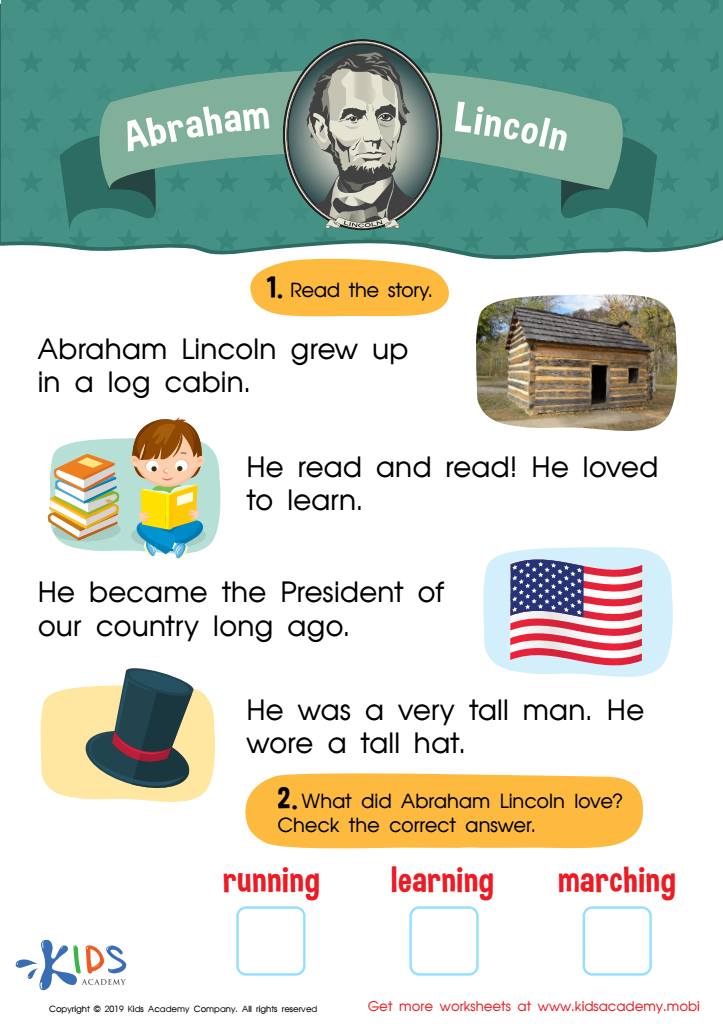

Abraham Lincoln Worksheet
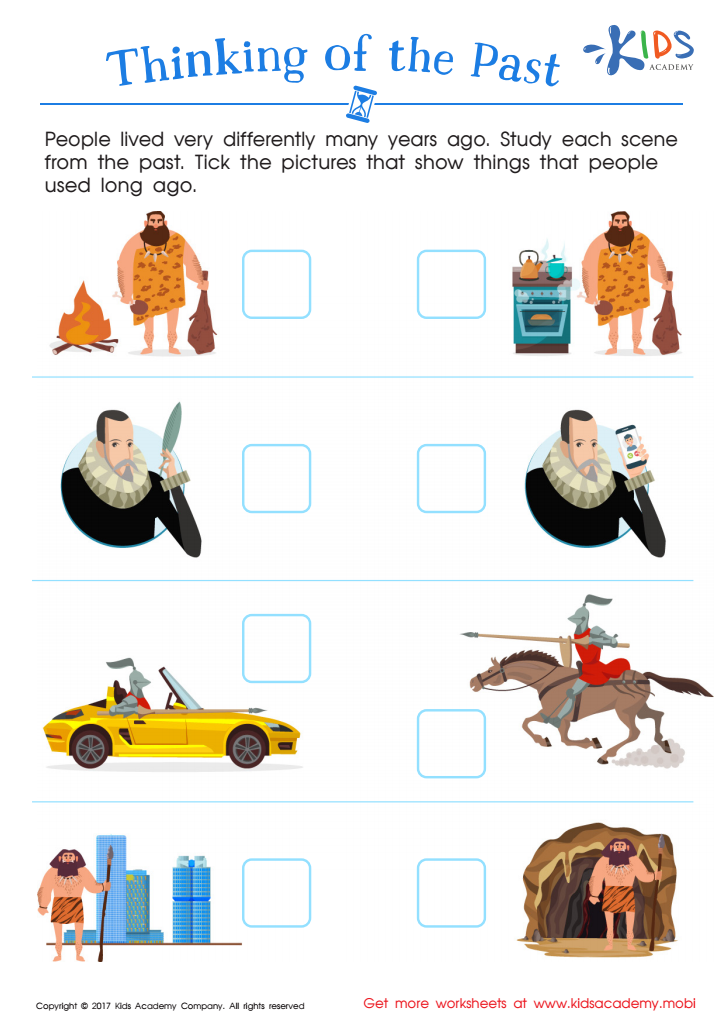

Thinking Past Printable
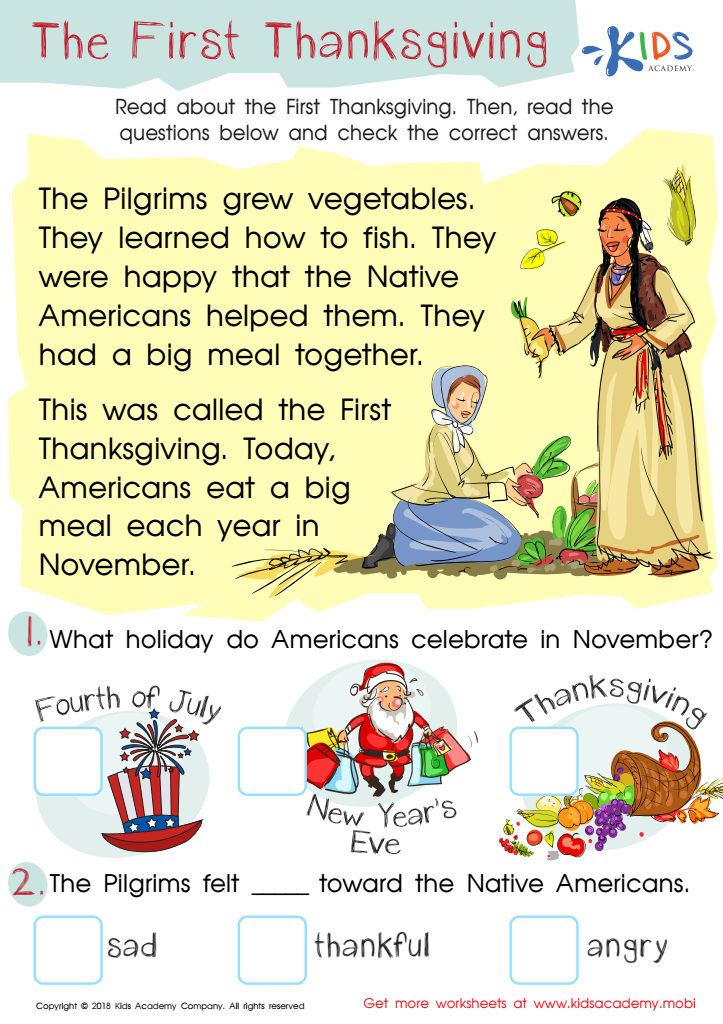

Assessment: First Thanksgiving Worksheet
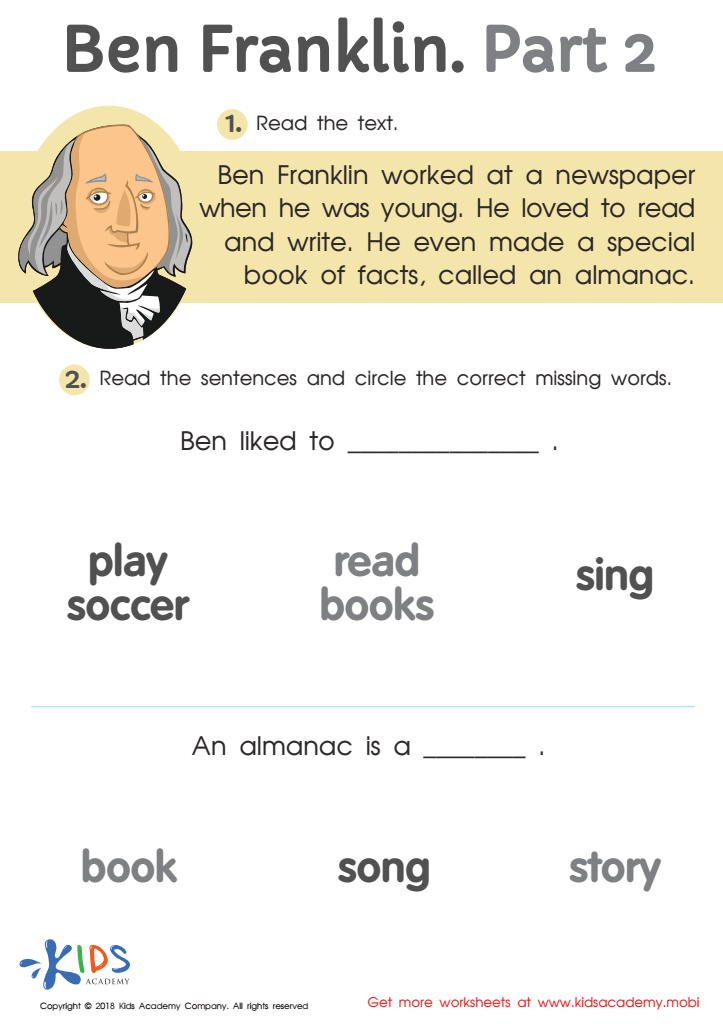

Ben Franklin Part 2 Worksheet
Parents and teachers should prioritize historical knowledge for children aged 4-7 because it lays the foundational understanding of our world and shapes young minds. At this age, children are naturally curious about people, places, and events, making it the perfect time to introduce historical concepts in age-appropriate ways. Learning about history fosters critical thinking skills as children begin to understand how past events influence the present, and it helps them establish connections between different cultures and traditions.
Moreover, historical stories often highlight themes of courage, equality, and perseverance, promoting values and ethics that children can apply to their lives. Introducing children to diverse figures and events teaches them empathy, respect, and an appreciation for diversity, helping to cultivate inclusive attitudes from an early age.
Additionally, utilizing engaging methods such as storytelling, visuals, and interactive activities can enhance children's communication and literacy skills. Early exposure to historical knowledge enriches children's vocabulary while sparking their imagination.
In essence, nurturing an appreciation for history in young learners not only broadens their horizons but also prepares them to be informed, compassionate individuals who understand their role in a larger societal narrative. Supporting historical knowledge at this stage sets the groundwork for lifelong learning and civic engagement.
 Assign to My Students
Assign to My Students



